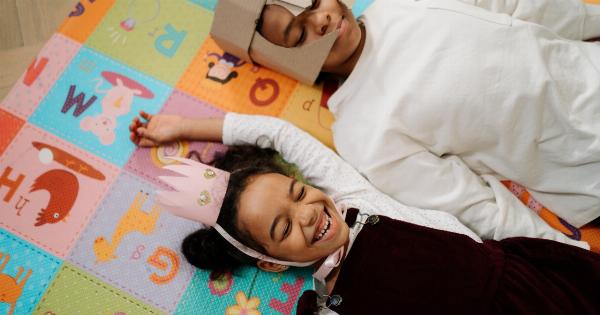Children are full of energy and curiosity, constantly exploring the world around them. However, it’s important to remember that they also need time to rest and recharge.
In today’s fast-paced society, we often find ourselves pushing children to constantly achieve and keep up with a busy schedule. But is this really what’s best for their overall development and well-being? This article explores the importance of allowing children to rest and the negative effects of constantly hassling them.
The Benefits of Rest
Rest is crucial for a child’s physical, emotional, and cognitive development. It serves as an opportunity for their bodies to recharge and repair themselves.
During sleep, growth hormones are released, helping children to grow both physically and mentally. Adequate rest also strengthens the immune system, improving the child’s ability to fight off illnesses.
Moreover, rest plays a vital role in consolidating learning and memory. When a child sleeps, the brain processes information and experiences from the day, creating stronger neural connections. This enhances their ability to retain and recall information.
Without sufficient rest, children may struggle to concentrate, learn new skills, or perform well academically.
The Hazards of Constant Hassling
In our modern society, children are often bombarded with a never-ending list of activities, obligations, and expectations.
From schoolwork and extracurricular activities to family commitments and social engagements, their schedules can quickly become overwhelming. Constantly hassling children to keep up with this hectic pace can have detrimental effects on their physical and mental health.
One of the primary consequences of constant hassle is increased stress levels among children. Stress triggers the release of cortisol, a hormone that, when produced excessively and frequently, can have harmful effects on the body.
It can lead to behavioral problems, emotional instability, disruptive sleep patterns, and weakened immune function.
Furthermore, constantly pressuring children to perform and meet high expectations can lead to burnout. Burnout, commonly associated with adults, is now becoming more prevalent in children.
It is characterized by emotional exhaustion, detachment from activities once enjoyed, and a decline in academic or extracurricular performance.
The Importance of Balance
It is crucial to find a balance between a child’s activities and their need for rest. While it’s natural for parents and caregivers to want the best for their children, excessive activities and constant hassle can do more harm than good.
Encouraging a healthy balance means understanding the child’s individual needs, interests, and limitations. This allows for a more holistic approach to their development.
It’s important to remember that children thrive in an environment where they feel supported, loved, and allowed to explore their interests at their own pace.
Creating space for rest and downtime is essential. It provides children with an opportunity to relax, engage in self-care activities, and pursue independent play.
Unstructured playtime is incredibly valuable as it fosters creativity, problem-solving skills, emotional regulation, and social interactions.
How to Support a Restful Environment
Here are some practical tips on how to support a restful environment for your child:.
1. Establish a Consistent Sleep Schedule
Create a regular sleep routine, ensuring your child gets an adequate amount of sleep for their age. Stick to consistent bedtimes and waking times, even on weekends. This helps regulate their internal body clock and promotes healthy sleep patterns.
2. Limit Screen Time
Avoid excessive screen time, especially close to bedtime. The blue light emitted by electronic devices can interfere with the production of melatonin, a hormone responsible for inducing sleep.
3. Encourage Physical Activity
Engage your child in regular physical activities during the day. Exercise not only promotes better sleep but also helps to release pent-up energy, reduce stress, and improve overall mood.
4. Foster Open Communication
Create a safe and supportive environment where your child feels comfortable discussing any concerns or worries they may have. Encourage open communication and provide reassurance when needed.
5. Respect Their Boundaries
Understand and respect your child’s limits. Avoid over-scheduling and allow for downtime. Pay attention to signs of fatigue, stress, or burnout, and make adjustments to their schedule accordingly.
6. Model Healthy Habits
Lead by example and prioritize your own rest and self-care. Children learn from observing their parents and caregivers, so demonstrating healthy habits will encourage them to do the same.
Remember, rest is not a luxury; it is a necessity for every child’s overall well-being. By allowing children to rest and not constantly hassling them, we ensure that they have the opportunity to grow, learn, and thrive.































